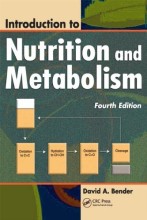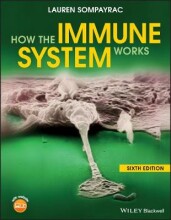NP20 Mitochondrial aspects / assignments protein metabolism
10 important questions on NP20 Mitochondrial aspects / assignments protein metabolism
Which of these substances yields 14 ATP upon complete oxidation?
- Alanine
- Pyruvic acid
- Lactic acid
- Acetic acid
What is the ridderende in ATP yield upon complete oxidation of di-hydroxyacetone phosphate and phosphor-enol pyruvate?
- 1
- 1.5
- 2.5
- 3.5
ATP is synthesised in mitochondria, but where is it needed?
Adenine nucleotide translocatie (antiporter) convertes ATP from the matrix to the intermembrane space and from the intermembrane space to the cytoplasm
VDAC: voltage-dependent anion-selective channel
- Higher grades + faster learning
- Never study anything twice
- 100% sure, 100% understanding
What is the glycerophosphate shuttle
And
Where is it highly active?
Highly active in skeletal muscle and brain
How is cytoplasmic NADH transfer of energy goes into mito, in different organs?
- Glycerophosphate shuttle in skeletal muscle and brain; NADHc --> "FADH inside mitochondria"
- more complex shuttle system:
- Malate-Aspartate shuttle
- highly active in liver, kidney, heart, and adipose tissue
What is the Malate-Aspartate shuttle?
- Highl
y active in liver, kidney, heart, and adipose tissue
gluconeogenesis
Malate out --> phosphor in
No energy loss with the malate-aspartate shuttle
alfa-ketoglutarate is shuttled out when malate is shuttled in by Slc25a11 and glutamate is shuttles in when aspartate is shuttled out by Slc25a12
Final result NADHc = NADHm
What is the second pathway for converting pyruvate into OAA, and via malate out of mitochondria, into PEP [gluconeogenesis]
Lactate --> pyruvate c --> pyruvate m --> OAA --> PEPm --> PEPc
One NADHm less is used in this pathway
What are the alternative functions of citrulline
Citrullination: conversion of the aa ARG in protein into citrulline
- controls xpression genes, particularly developing embryo
- immune system often attacks citrullinated proteins, autoimmune diseases: rheumatoid arthritis and MS
What are the alternative functions of glycosylation
- Proteins can be glycosylated glycol: oligomer of carbohydrate
- N-linked glycosylation (N-atom, Asp, Arg)
- O-linked glycosylation (OH-group
- C-linked glycosylation (C-atom or Trp)
- etc
- important in i.e. Protein folding, immune system
What is the meaning of full oxidation?
always to AcCoA + 1 turn TCA cycle
glucose (1) --> pyruvate (2) --> AcCoA (2) --> 2 turn TCA cycle
- 1 cycle of TCA: full oxidation of AcCoA only OAA is carrier in whole process so should be end-product
- TO fully oxidise other intermediates of TCA cycle:
- Convert it into AcCoA!
- These conversions require transport out of mitochondria
- [is you continue onto OAA, you have increased level of TCA carrier OAA
The question on the page originate from the summary of the following study material:
- A unique study and practice tool
- Never study anything twice again
- Get the grades you hope for
- 100% sure, 100% understanding
































